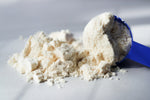
Comprehensive Guide to Whey Protein Supplements: Benefits and How to Choose
, by Sandesh Prasannakumar, 8 min reading time
Stay tuned, Your Favourite supplements will be back in stock soon!
Stay tuned, Your Favourite supplements will be back in stock soon!
Stay tuned, Your Favourite supplements will be back in stock soon!
Stay tuned, Your Favourite supplements will be back in stock soon!
Stay tuned, Your Favourite supplements will be back in stock soon!
Stay tuned, Your Favourite supplements will be back in stock soon!
Stay tuned, Your Favourite supplements will be back in stock soon!
Stay tuned, Your Favourite supplements will be back in stock soon!
Stay tuned, Your Favourite supplements will be back in stock soon!
Stay tuned, Your Favourite supplements will be back in stock soon!

, by Sandesh Prasannakumar, 8 min reading time
It is a protein supplement that has gained significant popularity among athletes, bodybuilders and anyone who wants to increase their protein intake. But, with so many brands on the market, how does one decide which whey protein supplement to purchase? This guide will explain why whey protein powder is good for you, the various categories of this protein powder, the right way to consume whey protein and what to expect when choosing a good whey protein supplement.
Whey protein is a type of protein that is rapidly digested and comes from milk while making cheese. In particular, the whey – the liquid that remains after curds have formed – is rich in branched-chain amino acids (BCAAs), such as leucine, which promotes muscle protein synthesis. Whey also contains several essential amino acids, especially cysteine, crucial in synthesising glutathione, a vital antioxidant that prevents ageing and diseases.
There are many evidence-based health benefits associated with whey protein supplementation, including:
There are three primary types of whey protein:
Whey protein is very portable and flexible. It easily mixes into shakes, smoothies, oatmeal, yoghurt, baked goods, etc. Some tips:
It is also important to remember that not all whey proteins are the same. When comparing options, look for:
Consuming whey protein powder may yield remarkable advantages concerning muscle gain, sports performance, fat loss and overall well-being. Consider the type of whey used and other products' quality when evaluating various supplements. Given the current variety of whey proteins, make sure that you choose the right one that is most appropriate for your workout regimen and your type of diet.
For all your protein and supplements needs, visit Genetic Nutrition!
They are ideally taken before and after training sessions to help the muscles rebuild and grow. It can also be taken in the early morning or in between meals, as it also makes a good snack.
Whey protein is very safe for most people. However, some people may feel some side effects, including bloating, gas, cramps, or indigestion. High doses for prolonged periods overwhelm the kidneys or liver and reduce their efficiency. Pregnant women should avoid using this medicine and should discontinue its use in case of severe side effects.
Yes. Whey helps negatively influence the body’s energy intake through appetite suppression, while on the other, it enhances energy output by burning calories and fats during physical activity. Likewise, building lean muscle mass helps increase metabolism for weight loss.
Whey protein is higher in amino acids, faster in absorption and has more scientific literature illustrating its role in muscle, strength and mass gain. Nonetheless, plant proteins are relevant in vegan diets or if you are an individual with lactose sensitivity.